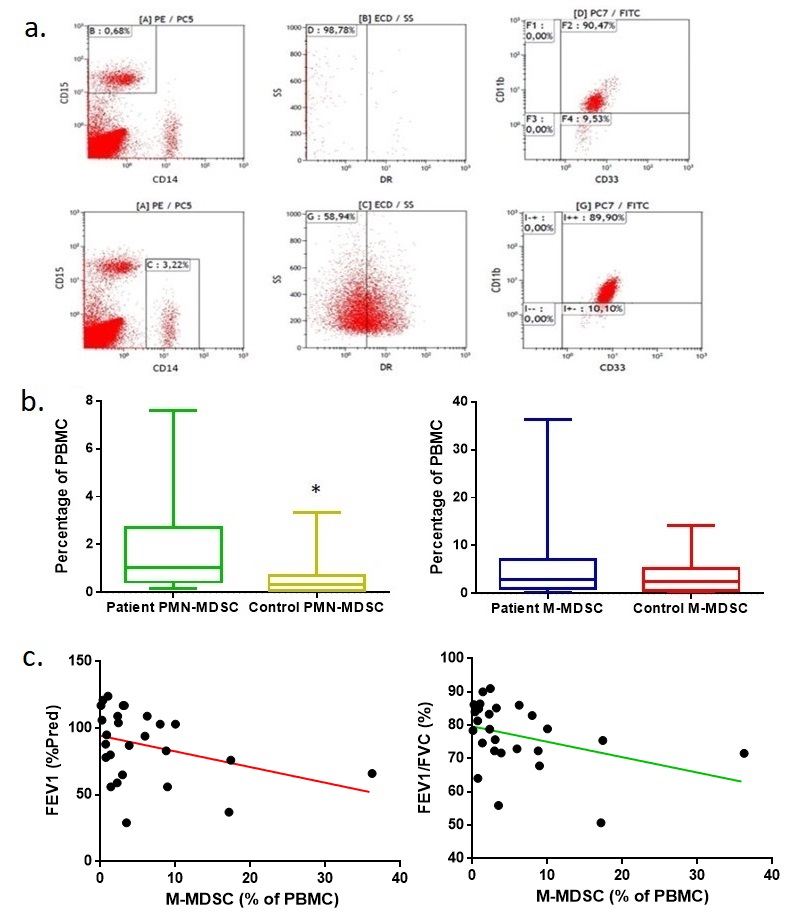Abstract
Background: Myeloid-derived suppressor cells (MDSCs) are immunomodulatory cells that mainly suppress T cells and are distinguished into HLA-DRlow/-CD11b+CD33+CD15+ polymorphonuclear (PMN-MDSC) and HLA-DRlow/-CD11b+CD33+CD14+ monocytic (M-MDSC) subpopulations. Their role in the pathogenesis of bronchiectasis has not been studied yet.
Aims and Objectives: We aim to investigate the involvement of peripheral blood MDSCs in the immune dysregulation and lung functional impairment that characterises bronchiectasis of different underlying causes.
Methods: MDSCs were counted in 26 stable bronchiectasis patients and 28 healthy controls via flow cytometry in the fraction of mononuclear cells with the combination of HLA-DRECD/CD11bFITC/CD33PC7/CD14PE/CD15PC5 antibodies (Fig. 1a).
Results: PMN-MDSCs of the patients (1.62%±1.73) compared to the controls (0.58%±0.76) were statistically significantly increased (Mann-Whitney, p=0.0008). Although, no significant difference was found in M-MDSCs (Fig. 1b), they were significantly inversely correlated to FEV1 percentage of predicted (Spearman, r=-0.3947, p=0.0460) and FEV1/FVC (r=-0.4449, p=0.0228) (Fig. 1c).
Conclusions: We highlight for the first time the possible role of MDSCs in the pathogenesis and lung functional impairment in bronchiectasis, through their upregulation, regardless of the underlying cause of the disease.
AMM & NB: equally contributing authors
